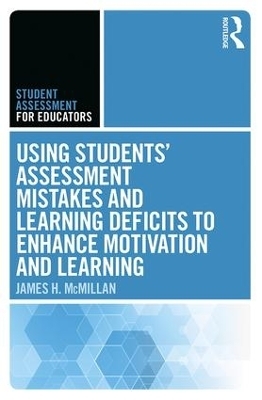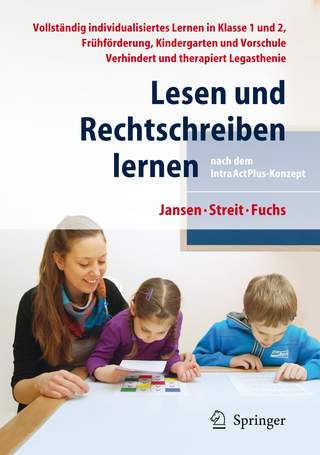
Using Students' Assessment Mistakes and Learning Deficits to Enhance Motivation and Learning
Seiten
2017
Routledge (Verlag)
978-1-138-12151-5 (ISBN)
Routledge (Verlag)
978-1-138-12151-5 (ISBN)
In this practical volume, James McMillan shows why being wrong is an essential part of effective learning and how it can be used by teachers to motivate students and help develop positive achievement-related dispositions.
Being wrong is an integral part of the assessment process, and understanding how to learn from those mistakes, errors, and misconceptions helps educators and students get the most from their learning experience. In this practical volume, James H. McMillan shows why being wrong (sometimes) is an essential part of effective learning and how it can be used by teachers to motivate students and help develop positive achievement-related dispositions. The six concise chapters of Using Students’ Assessment Mistakes and Learning Deficits to Enhance Motivation and Learning show how mistakes affect students’ engagement, self-regulation, and knowledge, and how teachers can most effectively contextualize supposed failures to help students grow.
Being wrong is an integral part of the assessment process, and understanding how to learn from those mistakes, errors, and misconceptions helps educators and students get the most from their learning experience. In this practical volume, James H. McMillan shows why being wrong (sometimes) is an essential part of effective learning and how it can be used by teachers to motivate students and help develop positive achievement-related dispositions. The six concise chapters of Using Students’ Assessment Mistakes and Learning Deficits to Enhance Motivation and Learning show how mistakes affect students’ engagement, self-regulation, and knowledge, and how teachers can most effectively contextualize supposed failures to help students grow.
James H. McMillan is Professor in the Department of Foundations of Education in the School of Education at Virginia Commonwealth University, USA.
Chapter 1: Better Being Wrong?
Chapter 2: Why Being Wrong (Sometimes) Is Better: The Science Behind It
Chapter 3: Students’ Perspectives About Being Wrong
Chapter 4: A Positive Being Wrong (Sometimes) Classroom Assessment Climate
Chapter 5: Assessment Practices That Promote Being Wrong (Sometimes)
Chapter 6: Effective Feedback When Students Are Wrong
| Erscheinungsdatum | 25.05.2016 |
|---|---|
| Reihe/Serie | Student Assessment for Educators |
| Zusatzinfo | 13 Tables, black and white; 12 Line drawings, black and white |
| Verlagsort | London |
| Sprache | englisch |
| Maße | 129 x 198 mm |
| Gewicht | 180 g |
| Themenwelt | Geisteswissenschaften ► Psychologie ► Pädagogische Psychologie |
| Sozialwissenschaften ► Pädagogik | |
| ISBN-10 | 1-138-12151-7 / 1138121517 |
| ISBN-13 | 978-1-138-12151-5 / 9781138121515 |
| Zustand | Neuware |
| Informationen gemäß Produktsicherheitsverordnung (GPSR) | |
| Haben Sie eine Frage zum Produkt? |
Mehr entdecken
aus dem Bereich
aus dem Bereich
Buch (2012)
Springer Berlin (Verlag)
32,99 €
beliebte Übungen für die Arbeit mit Gruppen
Buch (2023)
Borgmann Media (Verlag)
21,95 €
Grundlagen, Diagnostik und Förderung
Buch | Softcover (2023)
Kohlhammer (Verlag)
29,00 €


